The Impact of Giving
In an age of artificial intelligence, see how your gifts support a true education—and what it means to this community of human thinkers. Then read our annual reports for an in-depth look at the state of the college and the strengths that set us apart.
Rylee Bain (A25)
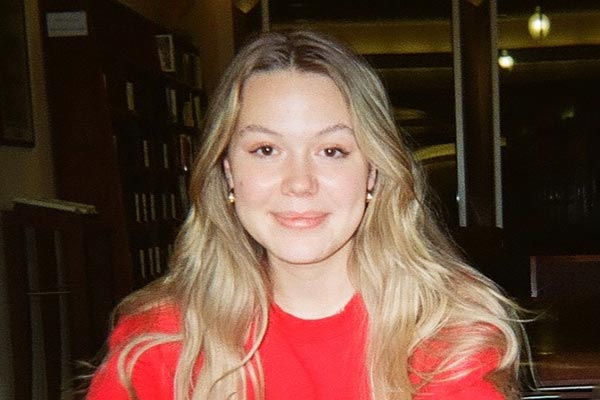
“Campbell Hall is one of the more adored dormitories on campus, with spacious and charming rooms that have housed everyone from freshmen to seniors. It’s a beautiful building, but it needs some upgrades. Simple things like renovating the bathrooms have already improved the quality of life for currents residents, and the planned upgrades will reinstate Campbell as a highly sought-after living space. Moving the coffee shop and the bookstore to Campbell and improving the accessibility will allow all members of our community to take part in the fun. I am very grateful to have been a resident of Campbell, and I can’t wait to see how the new-and-improved dorm looks!”
Our Annapolis residence halls are historically significant buildings, but they are also places where the Program is lived—all day, every day.
Through the generosity of the Jay Pritzker Foundation, Campbell Hall (now Edensword Hall) has undergone a restoration that turns the largest residence hall on campus into a mixed-use social hub, complete with a bookstore and coffee shop, modernized infrastructure, better accessibility, and improved housing options for students.
This timely renovation complements the recently restored Mellon Hall and will make the west side of campus a destination for all community members seeking great conversation.
Amha Worku (A27)
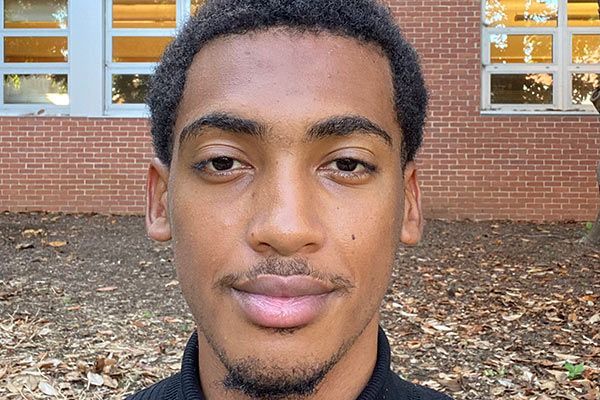
“I remember the moments I was overwhelmed with the difficulties everyone was saying come with attending college. The one difficulty that frightened me the most was the financial pains that people said are entailed in a college education. I was, however, fortunate to come to St. John’s College, for the generosity of those involved in the college paved a way for me to continue learning. To be able to search for concealed truths in the minds and words of brilliant men and women and to have a community to do this with, such an experience would be a fairy tale without the benevolence of others. My joy is that the place I can have such wonderful experiences in is St. John’s College—and that joy continues to grow by the day.”
St. John’s 2019 tuition reset made the college more affordable, yet our students still require an extremely high level of financial assistance. Almost every student at St. John’s receives some form of aid, and demographic statistics indicate this trend will continue. More of our students will represent lower-income households, and many will be the first in their families to attend college.
Last year, our students received $21 million in merit and need-based scholarships and other financial aid, much of it resulting from the philanthropy of alumni and friends.
Michael Mazenko
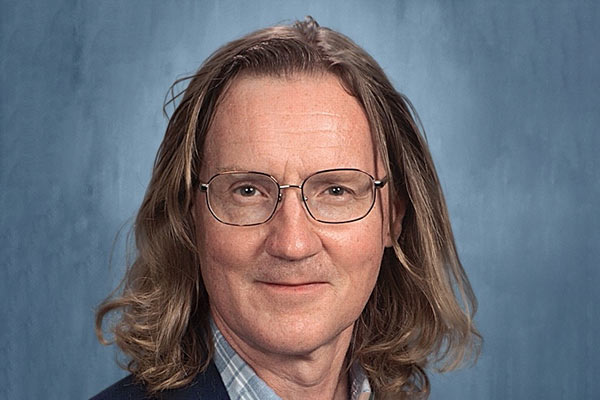
“Attending Summer Classics was the highlight of my summer. When I was looking for a place to read, write, and think, a colleague, who is a St. John’s alum and regular Summer Classics participant, recommended it to me. I was instantly intrigued, not to mention thrilled, when my school’s post-graduate specialist connected me with the college and secured financial support through our Southwest Scholars partnership. Since then, I have sung the praises of the Summer Classics experience and urged others to consider this wonderful opportunity.
Personally and professionally, the St. John’s program offers a rich, culturally engaging, intellectually stimulating experience I won’t ever forget.”
By providing educators with affordable access to St. John’s seminars, we can help them to better understand our discussion-based approach to learning and promote the college more effectively and enthusiastically to their students.
Through philanthropic support, K-12 educators can attend select seminars, including Summer and Winter Classics, at a greatly reduced cost—and in some cases, no cost at all. Teachers are also eligible for significant scholarship support to earn a master’s degree or a Liberal Arts Education Certificate through the Graduate Institute.
Brooke Nitti (SF26)
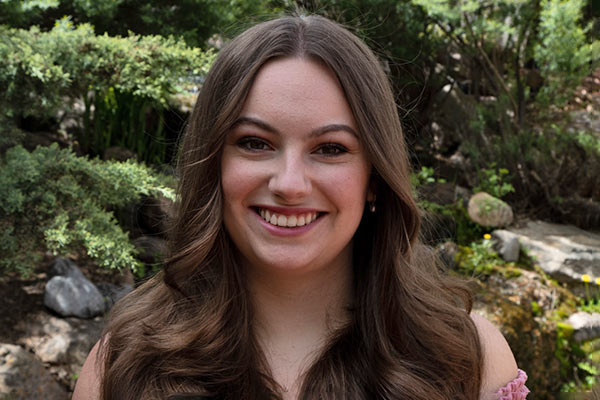
“Reading about a place like St. John’s is one thing, but my experiences at Summer Academy showed me firsthand what this college has to offer. Experiencing seminar for myself was pivotal because I felt exactly how electrifying and enlightening that kind of conversation could be. I was equally moved by the culture I found here. I felt so welcomed and supported by everyone I met, and I understood that, as a student, I would be truly valued and respected by my community. I came away from this program with complete confidence that St. John’s was the right place for me.”
Summer Academy gives high school students a chance to enjoy great conversations in a Socratic format alongside St. John’s tutors. For many, this unique program will be their first experience with discussion-based learning. It is also one of the college’s most reliable pipelines for future students: one in six current freshmen participated in Summer Academy, either in-person or online, while in high school.
The college hosted more than 150 Summer Academy students across both campuses in 2024, and one of every three participants received help with travel costs and tuition.
Olivia Green (SF27)
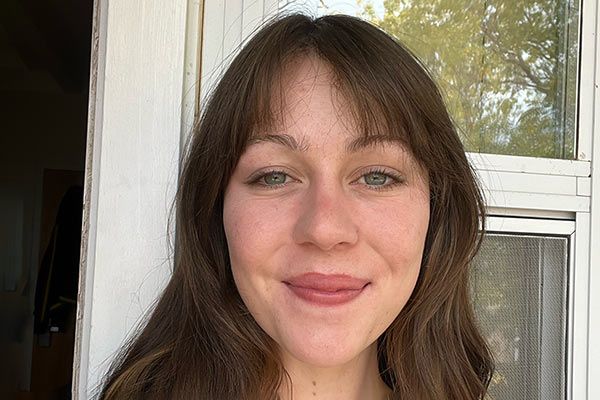
“My coming to St. John’s was an unexpected turn in my life. I had started college elsewhere but quickly realized I was not where I was meant to be; I felt lost and without a purpose. I emailed St. John’s in a state of desperation and confusion, unsure of where to go next and grasping for a place where I could feel at home. With the support of our very accommodating administration and the Southwest Scholars program, I was able to begin my studies at St. John’s and re-route my journey.
As I embark on my second year at St. John’s, I only have a hunger for more, excited to devour the readings and lessons to come, with an eagerness and energy I didn’t possess before. Without the assistance from Southwest Scholars, I wouldn’t be at St. John’s—the place I can finally acknowledge is exactly where I’m supposed to be.”
Times are changing. The southern half of the United States is growing; the financial resources that families can afford to commit to college are shrinking. Through Southwest Scholars, a donor-funded recruitment initiative, the college is taking a strategic approach that includes outreach to underserved communities in the six states of the American Southwest.
We now have 26 partner schools, and students enrolled in these schools are eligible for scholarships to study in Santa Fe or attend Summer Academy. The college, in turn, enjoys a stronger relationship with school personnel, who serve as ambassadors for the Program and point high-achieving students toward the college.
Ivan Torres (SF27)
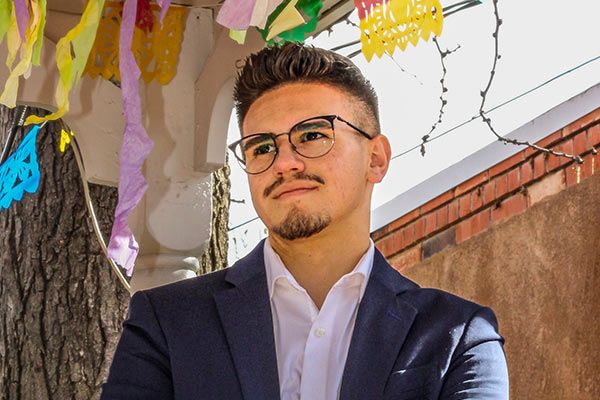
“A St. John’s education is often coined as ‘an education for a lifetime’. Now more than ever, that statement rings true. In the Financial Literacy program, we don’t just plan for the present; we plan for the future. Classes like these break down systemic barriers to financial education and impart wisdom lasting a lifetime.”
Through the Office of Personal and Professional Development and the generosity of an anonymous donor, an innovative eight-week financial literacy program is equipping Santa Fe freshmen with the tools to confidently navigate their financial futures. The weekly sessions teach students the basics of managing debt (including student loans), budgeting, saving for homeownership and other needs, and investing for the long-term.
Students who pass an exam at the end of the program will receive a $500 match toward their contribution to a 529 education savings plan or its equivalent.
After a successful pilot with a cohort of Pritzker Bridge Scholars in 2023, the program is set to expand. Starting Fall 2024, all Santa Fe freshmen will have access to this opportunity.
Au’sset Branch (A28)
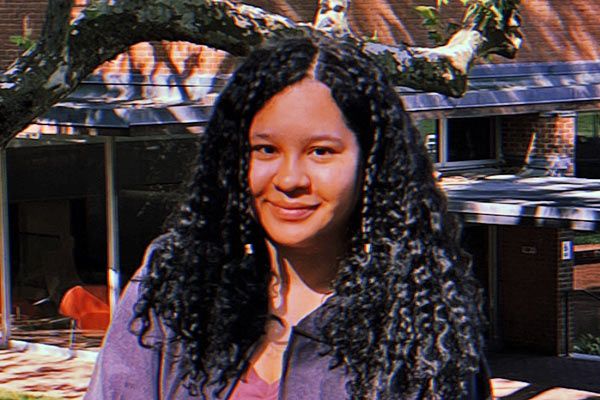
“The Pritzker Bridge Program has truly changed my life. It not only helped me feel more comfortable settling into St. John’s but also gave me the opportunity to get to know other students who come from the same background as me. The friends I made during the program have become like my family, and together we have been able to assimilate into college life with the advice and guidance of our mentors.
Entering college is one of the hardest transitions a student can make. It’s often the first time they are away from home, must advocate for themselves, and balance all their responsibilities. Bridge did an amazing job preparing us to make this transition and has inspired me to volunteer with the program next year so I can share my own experience and help other new students adjust to life at St. John’s.”
Stepping into Johnnie life can be as intimidating as it is exhilarating, especially when students face situational barriers to engagement at the college or have concerns about their academic readiness.
Through the Pritzker Bridge Program (known as Pritzker Scholars Program in Santa Fe), incoming freshmen who need more time to prepare for St. John’s have an opportunity to settle in early, begin building their academic skill set, and forge bonds with the staff, faculty, and peer mentors who can help them thrive.
Results show the Pritzker Bridge Program not only enhances the first-year experience but also supports strong academic persistence. Our Fall 2023 Pritzker Scholars returned for their sophomore year at rates comparable to their overall class—a group that includes many students from more advantaged backgrounds.
Daniel Shitandi (SF27)
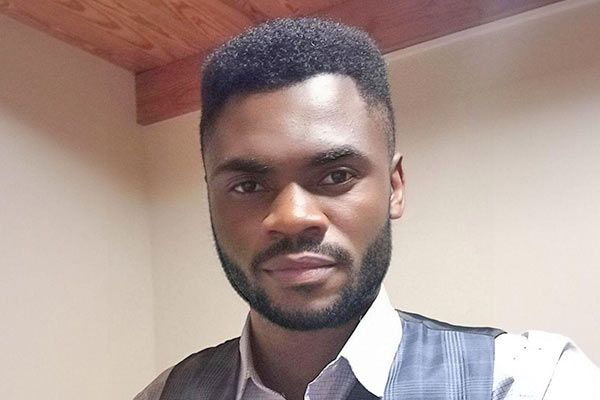
“The Pritzker Bridge Program at St. John’s College has been instrumental in my journey as both a scholar and now as a mentor. As a participant, it provided me with the support and resources necessary to navigate the challenges of adapting to a new and unique environment. The program’s emphasis on community, academic readiness, and personal growth made the transition smoother and allowed me to fully embrace the opportunities at St. John’s. Now, as a mentor, I see the same transformative impact on others.
Guiding new students through their own transitions, I witness firsthand how the program fosters a sense of belonging and confidence, empowering them to thrive in this academic community.”
The first year of college is a time of self-discovery but also challenges, especially for international, first-generation students, and underrepresented students.
Through peer mentorships, a key component of the philanthropy-funded Pritzker Bridge Program (known as the Pritzker Scholars Program in Santa Fe), new Johnnies benefit from the guidance, experience, and friendship of classmates who have walked in their shoes.
Results suggest that these relationships foster a shared sense of belonging that persists through all four years at St. John’s. Despite attending the Bridge Program online during the pandemic, our inaugural cohort of Pritzker Scholars graduated in 2024 at a higher rate than their peers.
Louis Petrich, Tutor

“They say that if you want to be happy in life, I mean roundly happy, then you have to get two things right: work and love. Many people, perhaps most in my acquaintance and travels, settle for one or the other, and they are not ungrateful. If you get both right, you are among the elect, and I call that a blessing. For me, a tutor at St. John’s, the work has always been right, and I do this work, together with others, out of love. One consideration of that love, recently expressed, is the Faculty Enhancement Fund, undertaken by President Mark Roosevelt upon his retirement from nearly nine years of strong leadership of this College, whose very possibility depends on the rare union of those two things: work and love. He now leaves the College in the good hands of faithful alumni, brave students, integral staff, and tutors grateful that he got them right.”
Tutors are central to a St. John’s education, yet their compensation does not reflect the profound respect and admiration that our community has for their work. The starting salary for faculty at St. John’s lags nearly all the colleges we consider our peers and is especially low relative to the high cost of living in Santa Fe and Annapolis.
When the Board of Visitors & Governors approached retired President Mark Roosevelt about the best way to honor his tenure, his response was unequivocal: “Raise faculty salaries.”
The Mark Roosevelt Faculty Enhancement Fund, launched with a goal of $10 million, will allows St. John’s to increase starting faculty salaries to $70,000 in 2024 and to increase all faculty salaries by about 2.5 percent every year for six years thereafter. To date, alumni and friends have generously contributed more than $8.3 million toward this effort.
Amina Federspiel-Otelea (SF25)
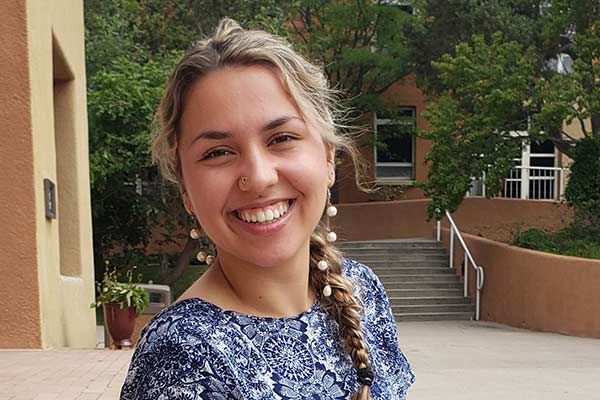
“Being an RA opened the door to many discussions that I didn’t know I had the strength to hold. It also required me to grow into a new understanding of care. How do I be at peace with being the person who shows and offers resources but cannot decide the ultimate health of a struggling student? How do I do my job to enforce campus rules in moments of social pressure against it? What does it mean to care for a community in a way that respects my own boundaries?
At times I still struggle with these questions; and yet, thanks to many discussions with my supervisors, who are very open to discussing these issues and sensitive in their responses, I am learning to grow in empathy and care while keeping my own reserves full. And I am happy and grateful to move into my junior year as a continuing RA.”
Since the launch of the Freeing Minds campaign, the college has been able to greatly expand and improve the training provided to resident advisors, enabling them to better support the students in their care.
Through a specialized training program, RAs learn how to intervene in crisis situations, recognize signs of distress in fellow students, and establish open and nonjudgmental dialogue. Anti-harassment training is another recent addition that empowers these student leaders to combat on-campus bias and foster an environment where every student can feel at home.
Peter Quinn (A25)
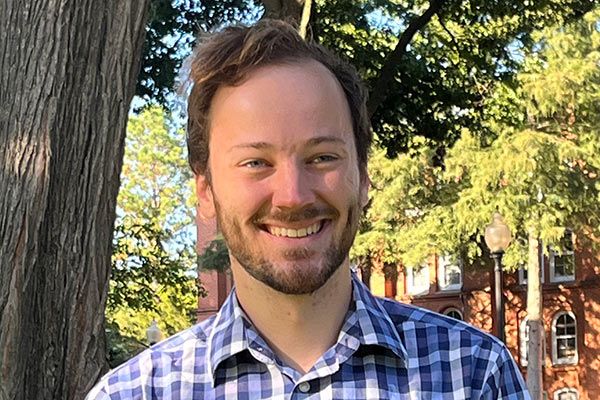
“As a Resident Advisor, one of the most important resources I have both for myself and my residents is the Health and Wellness Center.
St. John’s College is a truly exceptional place offering an education like no other, but for those same reasons it can also become very stressful. Between trying to learn Greek, chord intervals, calculus, or relativity, there is always some looming mountain of a task at hand. In such a context, free counseling and other resources make all the difference. So, from the bottom of my heart, I would like to thank all our donors for the way their generous giving has enabled the Health and Wellness Center to be there for us. Through your gifts, you allow this college to be the place I and so many others love.”
St. John’s College is famously rigorous, with a workload that makes immense demands of students—intellectually, emotionally, and socially.
Students can expect to encounter stress, but they will also find an improving array of health and wellness services that are focused on their complete well-being. The recently remodeled and holistically integrated Student Health and Wellness Center in Annapolis is one example of the college’s commitment to broader, more supportive care.
At the Student Health and Wellness Center, Annapolis students can access primary medical services and free counseling, attend wellness workshops, and find resources for managing stress—all in one central location.
Delaney Costello (A27)
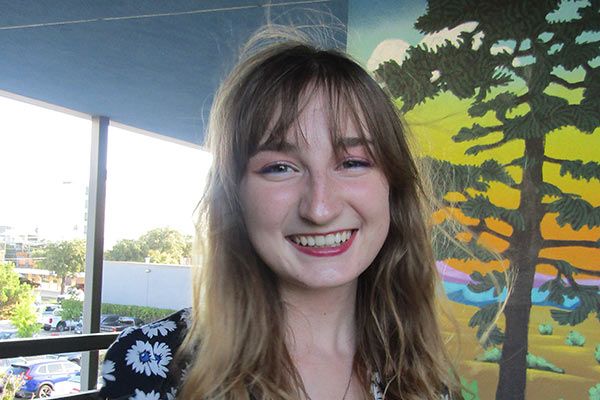
“This summer, I worked for Breakthrough Collaborative, teaching civics to rising seventh graders. We studied at least a dozen Supreme Court cases, held mock trials and elections, and turned our classroom into a civil rights museum. Because we covered issues my students were experiencing firsthand, I made whole class discussions a pivotal part of the learning experience. Following in the St. John’s tradition, we read the Declaration of Independence and the Bill of Rights straight from the documents, and my students were surprised by their ability to make sense of difficult texts.
I’m not certain I want to pursue teaching straight out of St. John’s, but this summer has helped me realize this is a field I could thrive in.”
Summer internships, which are entirely donor-funded, give students hands-on work experience, often with prominent employers in such popular career fields as public relations, law, government, and the arts. In recent years, students have interned at locations that include the New York University Press, Los Alamos National Laboratory, City of Hope Hospital, and the U.S. Congress. Many of these internships are unpaid, but your generous gifts allow St. John’s to offer a stipend, making them more accessible to students who rely on paid summer work.
As a result of the Freeing Minds campaign, all undergraduate students are now guaranteed funding for at least one paid internship.
Seohyun Lee (A26)
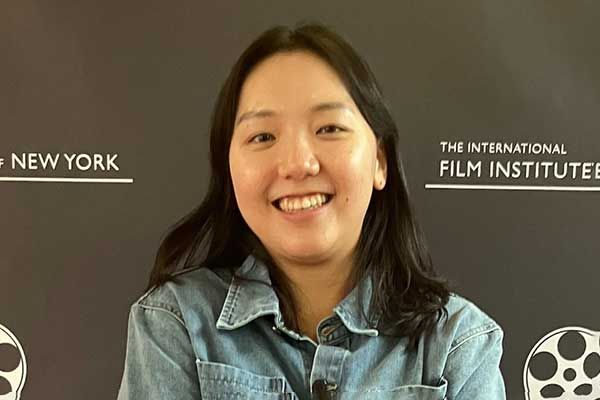
“Over summer break, I successfully made my first documentary film—ironically, on the concept of failure. During five intensive weeks at the International Film Institution in New York, I learned about different types of shots and angles, had the chance to manage a budget and direct a crew, and was surprised to see the difference a director’s choices can make. I learned the basic components of screenwriting, a very different kind of writing from what we do at St. John’s, and the process of actualizing that script into film. It was not easy: I struggled with writer’s block, felt frustrated by my footage, and found it hard to choose all the right details.
But it also deepened my appreciation for documentary filmmaking as a kind of lifelong education—and I feel I’m getting closer to what I want to do after St. John’s.”
Philanthropy is the primary source of support for summer fellowships, which enable students to further their personal as well as professional goals by taking classes outside of St. John’s. Through these donor-funded opportunities, students can explore areas of potential graduate study, fulfill prerequisite courses, build portfolios of their work, or earn microcredentials in an area of career interest.
Last summer, gifts to the college enabled more than 60 students to pursue coursework in calculus, linguistics, web programming, urban planning, emergency medicine, and other fields of study.
Senrui Yang (A23)
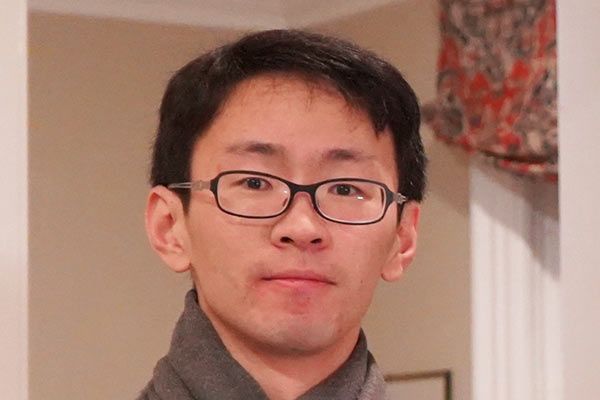
“The Career Development office helped me enormously—in fact, it is only by attending an online information session offered by alumna Cookie Chang that I began to realize teaching is a good career option, particularly for international students. A couple of months later, I joined the Odyssey program, and Cookie became my mentor. She was welcoming and helpful, and we regularly talked about what a teaching career is like, where to look for jobs, how to negotiate green card sponsorship, and what salary to expect.
I now work as a full-time math teacher in Houston, Texas. My plan is to teach for a few years then do a PhD in mathematics—a decision that was also inspired by the Career Development office and by another wonderful Johnnie speaker.”
The support you show for our students also extends to their postgraduate goals.
Through the Odyssey Program (formerly Jobs4Johnnies), staff, alumni, and board members help undergraduate and graduate students identify fields of career interest, make connections, and confidently answer the inevitable question: “what will your education bring to the job?”
Now in its fourth year, the Odyssey Program is a key component in an expanded suite of career service programming, much of it driven by donor and volunteer efforts.
Sam Detwiler (A23)
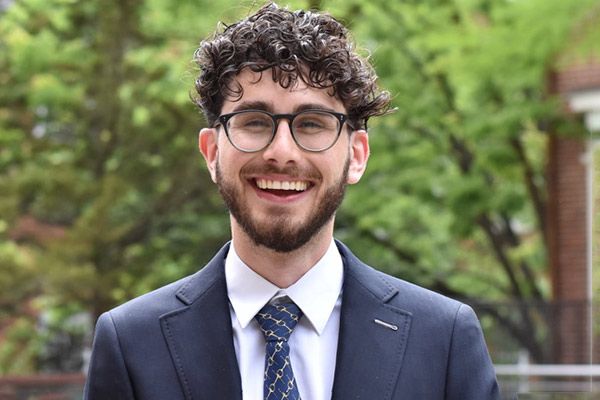
“My internship award allowed me to spend my summer working in the Kay Lab at the University of Chicago’s Institute for Mind and Biology, under the mentorship of St. John’s alumna Dr. Leslie Kay. About halfway through the internship, which involved research on olfaction and sensation, I was offered a permanent position as lab manager.
As someone who hopes to follow a path in STEM, specifically medicine, having the opportunity to work in such a prestigious lab is invaluable. Without my internship, it would have been difficult, if not impossible, to test whether research was truly a path of interest for me.
I’m extremely grateful to have been granted this award and can now proclaim employment directly out of St. John’s.”
Through important texts, penetrating conversations, and hands-on lab work, St. John’s encourages students to wrestle with humankind’s understanding of the universe.
For students who are eager to apply this questioning mindset to the fields of science, technology, engineering, and mathematics, St. John’s can illumine pathways and provide access to career-enhancing resources—many supported through generous gifts. In addition to helping students gain admission to select graduate schools or connect with alumni in STEM fields, the college also provides funding for summer internships and fellowships, which enable students to gain valuable work experience or complete prerequisite coursework.
Of the more than 150 donor-supported internships and fellowships undertaken by students in 2024, a third were related to STEM.
Amohelang Molobi (SF27)

“I went to Costa Rica this summer with a craving—a need to know how this developing economy became a global sustainability steward. I came back with a scorching desire to learn more.
The Costa Rican people taught me that not all energy sources are created equally. A solar panel farm may not produce the same amount of energy as a dam per cubic meter occupied, but if a dam creates more environmental degradation, what is the best choice? How can we ensure that even our ‘green’ energy resources are efficient, reliable, and humanitarian? These questions broke down the binary lens I was using to view sustainable development, but from those ashes arose new questions and greater understanding. I am grateful for both.”
The popularity of international study has grown significantly, enabling more students to discover how a direct experience of the larger world can shape their career paths and alter their understanding of ideas they encounter in the classroom. To keep the opportunity affordable, students are eligible for financial help through Global Pathways, the Bienenfeld-Pemberton Fellowships, and other donor-funded sources of support.
This summer more than 30 students studied outside the United States, undertaking diverse pursuits that included creating art portfolios in Provence, discussing political philosophy in Rome, and modeling sustainable living in the Bavarian Alps.
Calvin Bright (SF24)
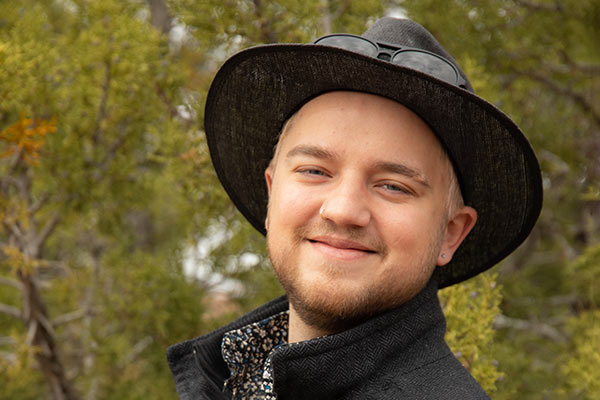
“I’m so glad to see St. John’s being among the first to set the trend of solar-powered institutions in New Mexico. Despite our nearly constant sunny days, states like Massachusetts far outrank our state's solar production. This is unacceptable. I’m saddened that “Big Oil” in this state has chosen to look out for its own profits over the health and wellness of this oft-overlooked state. To be a at St. John’s makes me proud to be a part of that change.”
Thanks to a Freeing Minds gift from two anonymous alumni and an energy audit supported by the Class of 2019, the electric needs of the Santa Fe campus are being met almost entirely through solar energy.
A combination of ground-mounted solar arrays and covered carports house 1,670 photovoltaic panels that will also provide energy to 20 electric vehicle charging stations. The project is expected to reduce CO2 emissions by 858 metric tons—an amount equivalent to 96,530 gallons of gasoline—and make the campus nearly carbon-neutral.
Abigail Petrich (SF26)
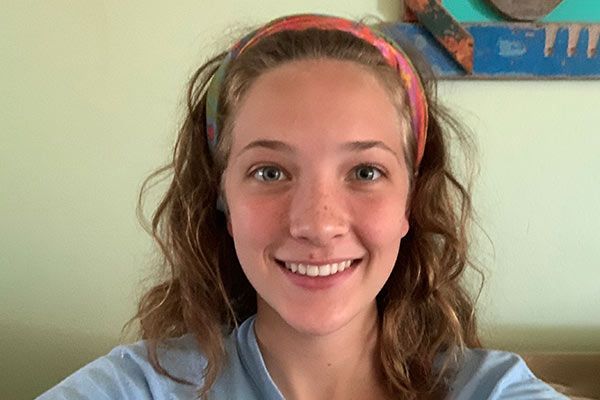
“Most who come to St. John’s College, come seeking the beautiful. Those who come to the Santa Fe campus come seeking the beautiful in nature as well as the Great Books. The sustainability efforts of St. John’s College help to preserve and enhance that beauty. They provide evidence that St. John’s College really does practice what it preaches. The garden is a place where students can take a break from turning pages to stick their hands in dirt, looking for the potatoes that have been secretly growing in the dark. There’s a metaphor there.”
Through Freeing Minds, St. John’s undertook a variety of projects designed to shrink our carbon footprint and conserve our natural resources.
In addition to going solar, Santa Fe adopted LED lighting—a much greener alternative to fluorescent lighting—throughout the campus and installed high-efficiency boilers in several buildings. These additional projects will result in savings of 358,000 kilowatt-hours annually.
In Annapolis, the renovation of Mellon Hall made the largest building on campus significantly more energy efficient. Heating, air conditioning, lighting, and plumbing were all updated with an eye to saving energy and conserving water. In addition, the outdated window units in Fielding-Rumore Hall were replaced with a modern HVAC system—that actually keeps students cool.
Small colleges are in a vulnerable position. Since the start of the millennium, more than 850 have closed or merged with larger institutions, giving up their unique identities. The cause? Changing demographics and finances. The number of college-age students is shrinking, along with the contributions that families can afford to make toward tuition.
Your support for Freeing Minds allowed St. John’s to reduce tuition and pivot to a more sustainable financial model that is built on gifts, grants, and income from the St. John’s Endowment, a collection of invested gifts.
In FY22 these donor-funded sources covered more than 40 percent of the college’s needs.
Catherine Greer (A25)
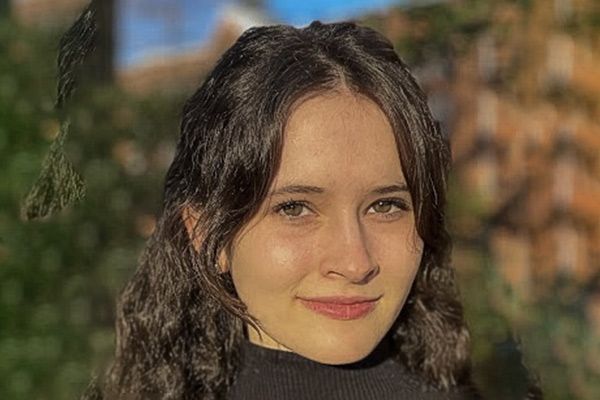
“As a student representative to the Board of Visitors and Governors, I have seen how integral the alumni community has been in setting a firm foundation upon which the future of our beloved college can be built. Philanthropy has been the backbone in moving St. John’s into a new era of financial sustainability, sometimes in ways that are unseen by students, but always in ways that are immediately impactful.
We students do not often peer into the inner workings of the college to understand the enormous amount of work, care, and generosity that is required to keep us thriving and growing. But it seems to me that our alumni, who have stepped into the wider world, are in the best position to see clearly what it takes to support a place like St. John’s—and to provide those great acts of care and generosity that carry us forward.”
The St. John’s Endowment has grown significantly through the Freeing Minds campaign, standing at $256 million as of December 2023. Because the endowment serves as a dependable revenue source that isn’t tied to tuition, it positions St. John’s to better withstand any financial or enrollment challenges that lie ahead.
The endowment is essentially a collection of gifts that are not spent but are instead invested, with the goal of generating a stream of income that rises over time. As the value of the endowment increases through a combination of market returns and new gifts, so does the amount of annual support it provides.
In 2023 the St. John’s Endowment generated the equivalent of $11,000 in annual support for every student.
Rachel Hauben (A25)
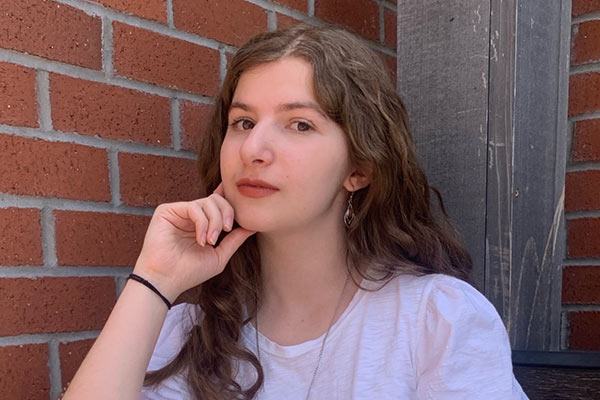
“I have always been an avid reader, and as soon as I discovered St. John’s College, I knew this was where I wanted to engage myself in higher education. Receiving the wax-sealed acceptance letter in the mail was quite honestly one of the highlights of my senior year in high school. Finances were, of course, a major consideration during the application and admission process, but I was overjoyed and relieved at how attainable an education at St. John’s College was. As I begin my sophomore year studies, I can honestly say that I cannot imagine myself anywhere else, and I am so grateful to be here.”
As a result of widespread support for the Freeing Minds campaign, the college was able to cut tuition by one-third in 2019, reversing a decade of price increases. This bold step made St. John’s one of the most affordable of America’s small, liberal arts colleges.
In the years since this historic reset, tuition at St. John’s has risen less than the rate of inflation and was almost 25 percent lower this past year than it was a decade ago.
Charles Massiatte (AGI24)
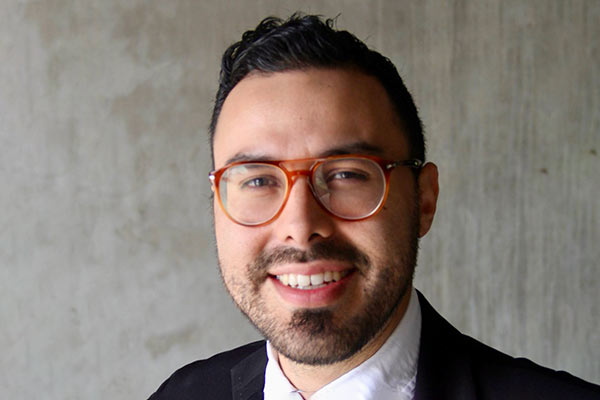
“I discovered St. John’s College over two decades ago, and since then, it has been my dream to study the Great Books here. Unable to attend then due to financial realities and eventually taking my bachelor’s elsewhere, the possibility of pursuing the Graduate Institute refreshed my earlier ambitions. However, as a father of five and a full-time teacher, the impossibility of relocation was another reality imposed on my aspiration to study at the college. As a result of the low residency program in the GI, I can now attend seminars virtually and discuss Plato, Aquinas, and Nietzsche with excellent tutors and colleagues through the convenience of remote study.
The low residency program has made the impossible possible for me.”
St. John’s is listening when prospective students tell us what the college can do to attract lifelong learners to the Graduate Institute. Convenience, flexibility, and financial aid are among their needs.
In 2020, the faculty approved an instructional proposal to offer all three master’s degree programs in a low-residency format, making them more accessible to students who cannot relocate. In addition, the Graduate Institute offers significant financial aid, special scholarships for educators, and a 25% discount to alumni who earned a bachelor’s degree at St. John’s.
David Townsend, Tutor
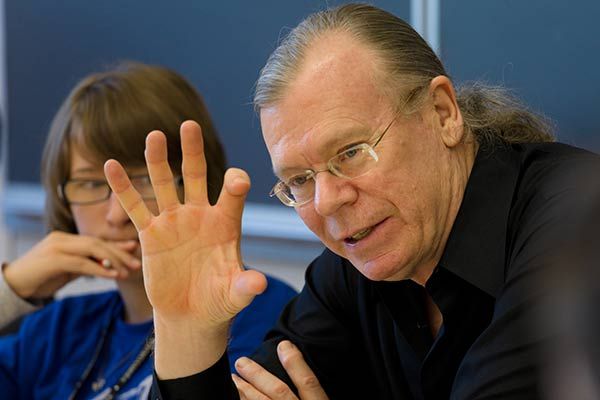
“As a tutor since 1974, I have been privileged to witness the development of the college as it has grown and matured in Santa Fe, Annapolis, and on our expanded global campus. We continue to steadily improve as we work, quoting Frederick Douglass, ‘to be true to our past, true to our present, and bind ourselves to be true to our future.’
We tutors are grateful to you who love this college and who came together to support the Freeing Minds campaign. Together we are having a revolutionary effect on the future of education, of the survival of republican values, of human rights, and of ideas with powerful consequences for the Good, the True, and the Beautiful. Our world needs these gifts as we steer a course through changing times.”
Higher education is experiencing a period of disruption, and small colleges are particularly vulnerable. Since the start of the millennium, more than 850 have closed or merged with larger institutions. The cause? Changing demographics and finances. The number of college-age students is shrinking, along with the average contribution that families can afford to make toward tuition.
Freeing Minds allowed St. John’s to pivot to a more sustainable financial model that relies less on tuition and more on philanthropy from alumni and friends.
This year marks the fourth consecutive fiscal year in which gifts, grants, and the income from the St. John’s Endowment played a greater role in sustaining the college than tuition.
Jordan Kammeyer (A25)
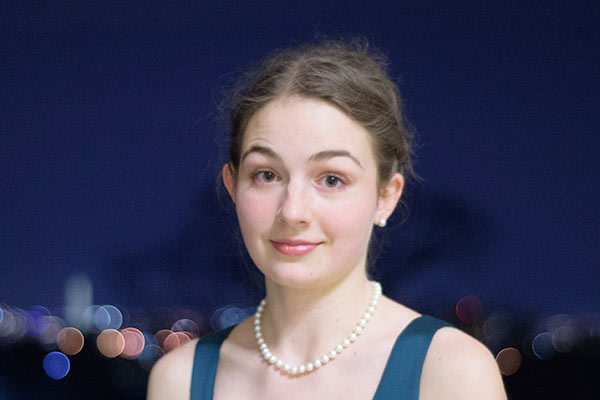
“Theatre and music have prospered since the reopening of Mellon Hall. As archon of the King William Players, I have greatly enjoyed both performing in and directing shows in the FSK auditorium, and the new studio theater was an ideal rehearsal space throughout the process of putting those shows together. While the various make-do performances spaces we used during the renovation (Great Hall, Boathouse, Mellon courtyard) afforded a certain amount of creative inspiration, the experience of watching performances (and performing) in a real theater with real lights is magical.
I am looking forward to our growing artistic endeavors in these updated spaces.”
Mellon Hall has completed a stunning transformation that re-establishes this iconic building as the academic, social, and creative heart of the Annapolis campus.
The renovation, partially funded through gifts, restores signature elements of architect Richard Neutra’s design while improving accessibility, adding new space for the visual and performing arts, and creating comfortable lounges for study and conversation.
Members of the St. John’s community can enjoy deep discussions in the beautifully remodeled Fishbowl, relax on the Mellon Terrace, or explore provocative works in the expanded Mitchell Art Museum.
Daniel Rodriguez SF15; SFGI17
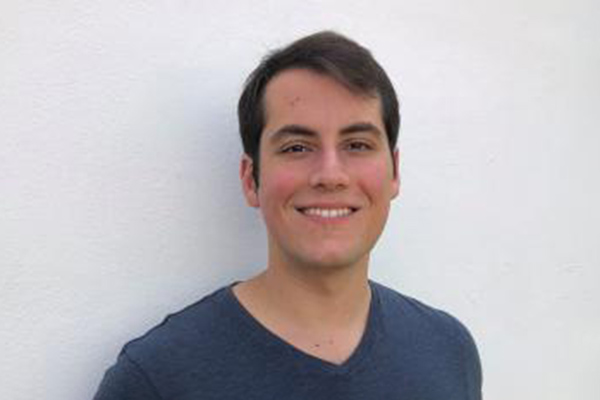
“As a writer, I find the most important element of St. John’s College to be dialogue, whether between faculty and students or the authors in the Program. A trickier step is extending that dialogue outside the Program and applying it to life after St. John’s.
The Santa Fe Office of Personal and Professional Development has been essential to my attempts to do that as a screenwriter. I’ve remained in dialogue with Senior Career Advisor Charlie Bergman since graduating from the Graduate Institute in 2017, working on everything from job applications to networking opportunities. Thanks to this help, I’ve returned to Santa Fe after teaching and acting in Miami, and I am now pursuing my dream of making my own films.”
St. John’s provides comprehensive, professional-level career planning to undergraduate students, graduate students, and alumni. Services include personalized self-assessments, interview preparation, and even salary negotiation strategies. For those pursuing postgraduate education, the college partners with select institutions, such as Johns Hopkins and Boston University, that will offer scholarships, early admission, and other perks to St. John’s graduates.
Your generosity made these advancements possible by establishing the Office of Personal and Professional Development in Santa Fe and enhancing the overall career planning experience on both campuses. This support has allowed for additional staffing, more accessible office locations, improved outreach to partner organizations, and an expanded range of programming.
Natalie Michaels (SF26)
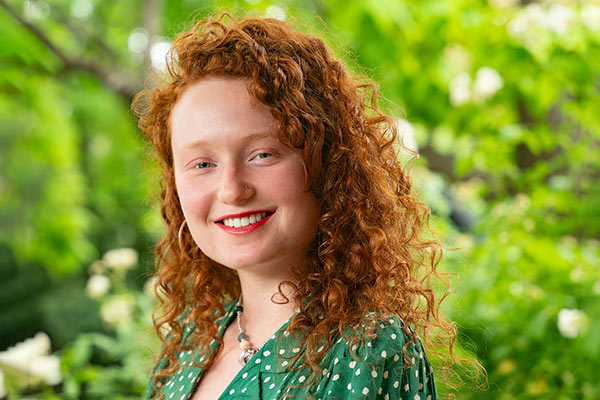
“Unable to speak in Seminar, I asked Mr. David Carl to help cure me of my excruciating muteness. His initial suggestions were standard, but I returned, pleading for a more radical treatment. He jokingly suggested I try magic, and out of that humor a fruitful mentor-mentee relationship was born. Fueled by our mutual admiration for Joan Didion, shared interest in Velvet Underground-adjacent music, and thwarted attempts to learn the bongos, we met consistently during my freshman year to discuss everything from Program-specific questions to our feelings about humanity. My experience of St. John’s would have lacked complexity and relevance if I didn’t have a tutor I could talk to outside the classroom, someone who could openly relate to my confusions and concerns. I’m grateful to have been paired with Mr. Carl, and trust I’ll return with requests for guidance in the years to come.”
Over the years, students and alumni have spoken of their deep love for the Program, our tutors, and the lasting rewards of the St. John’s experience—but they have also shared the difficulties they faced when they felt they were falling behind and sought guidance. Surveys reveal that more than half of all graduating seniors have, at some point, given serious thought to leaving St. John’s.
As a result of your advocacy and support, all freshmen are now paired with a faculty mentor, who can offer feedback, provide direction, and lend a listening ear.
Leah Lasell SFGI04
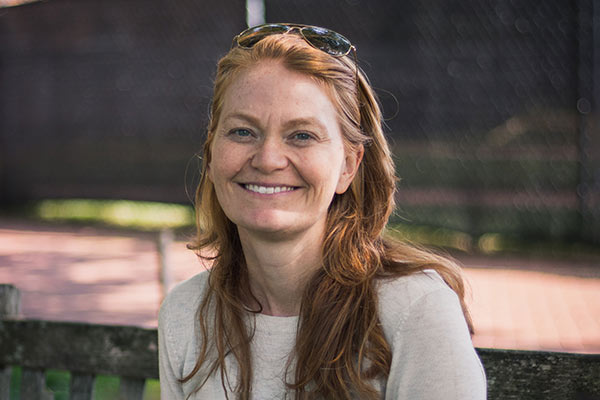
“During the school year, I strive to be a model learner for my students; but in the summer, I benefit from the investment you make in the faculty’s learning.
Over the last few years, I have studied Archimedes’ New Method, Madame de Lafayette’s ‘La Princesse de Clèves,’ Frederick Douglass’s ‘My Bondage and My Freedom,’ Boscovich’s ‘A Theory of Natural Philosophy,’ and Hannah Arendt’s ‘The Human Condition.’ At the conclusion of these study groups, which are difficult, stimulating, and deeply rewarding, we will often talk about how a work might be approached in class. Regardless of the direct instructional outcome, the study groups are essential for the audacious project that is the New Program.”
By providing tutors with the time and space for in-depth exploration of a work or subject, faculty summer study groups build community and broaden perspectives. Although study groups are optional and extracurricular, our tutors say they benefit from deepening their understanding of issues that are often raised in the classroom —and, ultimately, so will our students.
In 2023, the college offered nine summer study groups, along with stipends that make them a financially feasible alternative to summer employment. A newly endowed fund, established during the Freeing Minds campaign by friends of the college, will further support and expand these opportunities.
Keely Schrantz (A26)
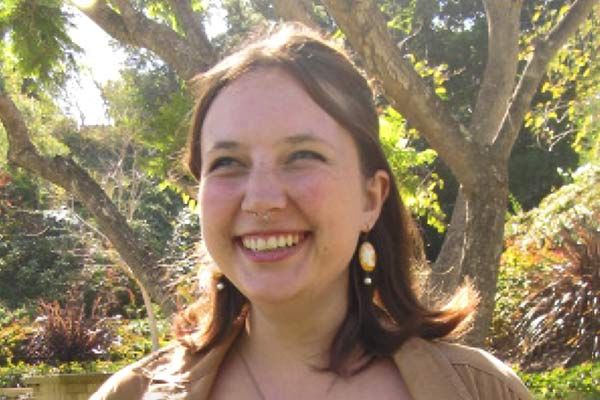
“As a Resident Advisor, I have seen how important orientation is for new students, and how far it has come since my own freshman year, when I was given little guidance.
Given that St. John’s is such a unique space, adjusting can be tough, with many new concepts, practices, and people. Orientation now gives incoming students the opportunity to connect with their peers and the space to ask questions. On top of that, I was actually given a budget to buy matching mugs and tea for my residents to share with their roommates. This kind of relationship-building really benefits new students, and it wouldn’t have been possible without the generosity of those who understand why these relationships matter.”
Too many alumni say they felt thrown into the Program, with only a brief introduction to college life and the rigors of the St. John’s classroom. Your gifts are changing things for students. Incoming freshmen now enjoy a more thorough welcome, with activities designed to lay a proper foundation for the journey ahead.
Over the course of a full week, students engage in practice seminars, learn about supportive resources on campus, share and discuss their concerns around the college’s expectations, and receive advice from upperclassmen on how to manage their time—and stress.

